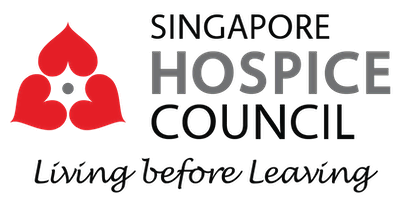Caregivers dedicate themselves to providing the necessary care and support to those in need. However, the intense demands of caregiving can quickly become overwhelming, leaving them vulnerable to burnout.
So, how do caregivers recover from fatigue and keep up with their responsibilities while receiving the support they need to sustain their efforts?
Who is a Caregiver?
A caregiver is someone who tends to the needs of people who are elderly, ill, injured, or disabled, providing assistance with daily tasks, medical care, and even emotional support. This role can be filled by family members, professional caregivers employed by healthcare services, or volunteers.
What is Caregiver Burnout?
Caregiver burnout is a state of physical, emotional, and mental exhaustion that caregivers experience when the stress of their responsibilities becomes overwhelming. While caregiving can be rewarding, the constant demands of providing care can take a toll, leaving caregivers feeling mentally and physically drained, eventually leading to burnout.
How Common is Caregiver Burnout?
The prevalence of caregiver burnout is a growing and significant concern in Singapore, with a survey of 200 family caregivers revealing that over 40% are at risk of depression.
With a rising elderly population and increasing prevalence of chronic illnesses, the need for caregiving services is set to increase, highlighting the critical need for enhanced caregiver support to help them manage the mounting demands.
Symptoms and Causes
What Does Caregiver Burnout Occur?
Caregiver burnout often arises from constant emotional and physical strain, especially when support from family and friends is lacking. This can leave caregivers feeling stressed, isolated and without a safety net as they cope with the unrelenting pace of caregiving responsibilities. Additionally, the emotional toll of watching a loved one struggle or deteriorate adds another layer of emotional stress.
Over time, without enough breaks, self-care, and access to resources to support them, these pressures mount, gradually pushing caregivers towards burnout.
What are the Signs and Symptoms of Caregiver Burnout?
Burnout among caregivers can manifest in various forms, affecting individuals differently. So, what exactly are the different signs of caregiver stress and burnout?
Physically, caregivers may notice overwhelming fatigue, frequent headaches, muscle tension, and a higher incidence of falling ill.
Emotionally, the impact is profound too, with symptoms including anxiety, social withdrawal, feelings of ineffectiveness, a pervasively negative outlook, and diminishing motivation.
What Are the Risk Factors for Caregiver Burnout?
Several factors increase susceptibility to caregiver stress and burnout, such as:
- Living with the care recipient: Living full-time with the person you’re caring for can lead to burnout by erasing the boundaries between work and personal life.
- Social isolation: The intense demands of caregiving often lead to reduced social contact, as caregivers prioritise their responsibilities over personal relationships. This withdrawal can intensify feelings of loneliness, accelerating burnout.
- Lack of training: Inadequate training can leave caregivers feeling incompetent and stressed, especially when faced with medical or behavioural crises.
- Lack of support system: Without a solid support network, caregivers may struggle to find time for themselves, compounding stress and fatigue.
- Socioeconomic issues: Financial constraints can amplify stress, especially if resources for additional support or care are out of reach.
What is the Long-term Impact of Caregiver Burnout?
When you’re a caregiver, neglecting your own health needs becomes almost second nature. As a result, this can lead to serious issues like chronic illnesses or depression. At the same time, the ongoing stress can strain your personal relationships, too. Friends and family might feel sidelined, and the emotional bonds with your loved one can suffer.
As your health and personal relationships deteriorate, your capacity to provide adequate care may also be compromised.
How is Caregiver Burnout assessed?
Caregiver burden or burnout in Singapore is typically evaluated using tools like the Zarit Burden Interview (ZBI). This tool measures the level of burden experienced by caregivers. Such assessments help identify the need for caregiver support services to alleviate the impact on their health and well-being.
Ways to Address Caregiver Burnout
To provide consistent and optimal care, you must first prioritise your well-being. So, how to deal with burnout as a caregiver to ensure you stay healthy and capable in your role?
- Engage in therapy or counselling to find a safe space for expressing concerns and receiving guidance.
- Participate in support groups to connect with others facing similar struggles and share coping strategies.
- Consider respite care to give yourself a necessary break from the daily stresses of caregiving.
- Prioritise your health by staying active, eating nutritious meals, and getting enough sleep to maintain your well-being.
Can Caregiver Burnout Be Prevented?
Caregiver burnout can be prevented by setting clear boundaries, regularly scheduling self-care, and seeking early support from support groups or professional help. Maintaining a balanced lifestyle and delegating tasks can also help manage stress before it leads to burnout.
How Do I Get Help for Caregiver Burnout?

If you’re struggling with caregiver burnout, there are many ways to seek help.
You can connect with local support groups or seek professional counselling to share your experiences and receive guidance. Online resources are another great way to find tools and advice tailored to your needs. For instance, at the Singapore Hospice Council (SHC), we provide caregiver support through educational resources and guidance to help manage caregiving responsibilities.
Additionally, we connect you with organisations that provide hospice services or palliative care to deliver professional care to your loved ones, lightening the load for family caregivers.
Get the Caregiver Support You Need
If you’re navigating the challenges of caregiving, remember that you’re not alone. Contact the Singapore Hospice Council for resources and support to help you manage and prevent caregiver burnout. Together, we can ensure you have the help you need.


